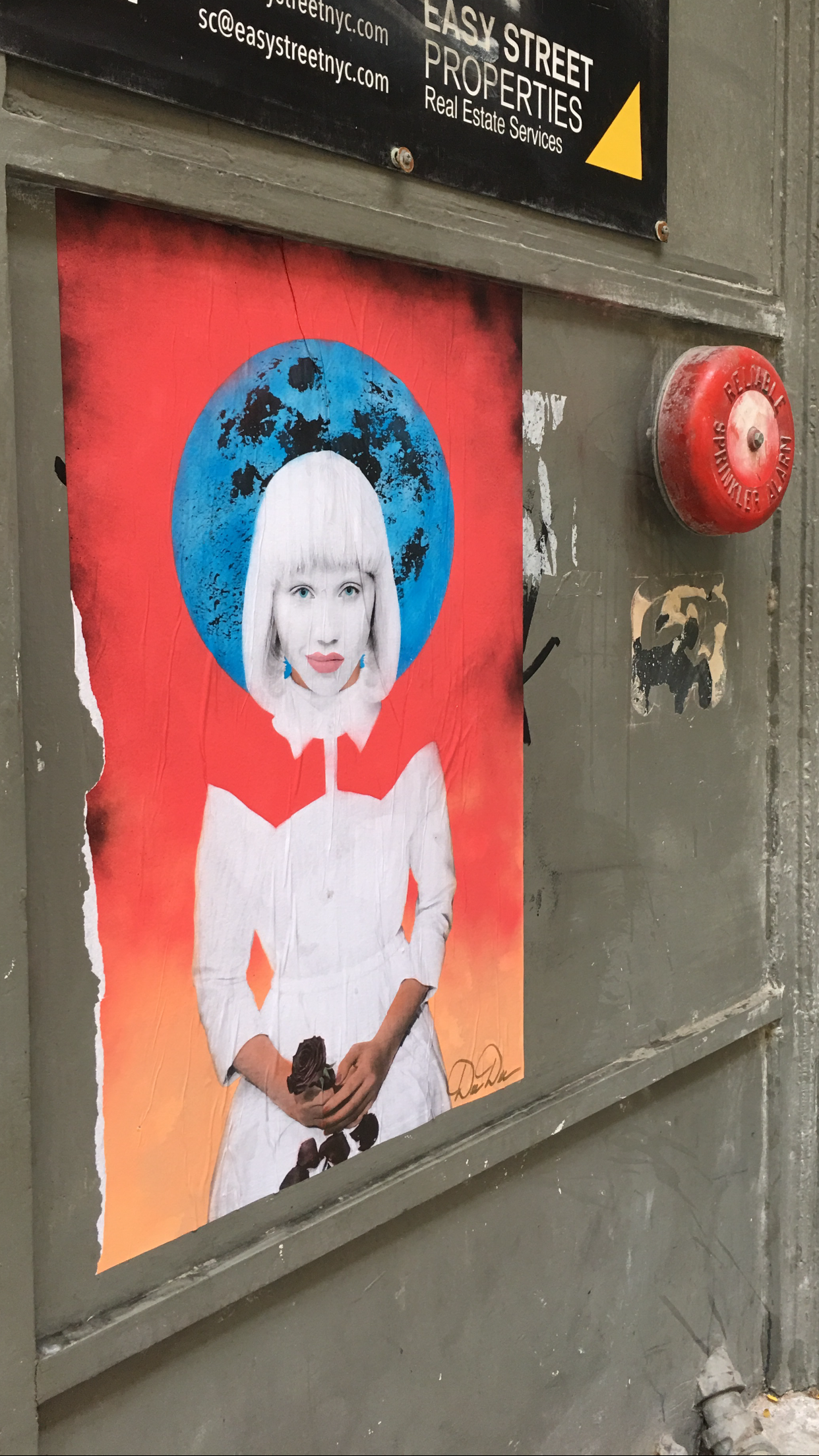But what happens to the house when I leave?
To this house? To them all.
Now I barely recall a wall—aqua-colored.
Now, a darkish ramp of stairs and a giant bag of garbage, ripped open.
It is night. We are exhausted but everything has been cleared and packed—tons of superfluous crap hastily compressed into a plastic shroud. We have to carry this load down the seven floors separating us from the courtyard, push it into the bin and then go. We are starving for dinner. We are craving the anonymity of the motel where soon we will sleep.
But on the top ramp we have a disagreement. About what? Of course, nothing. Tension overflowing—that’s all. We stall on the steps—statues of exasperation, stubborn puppets unfit to move on their own, our strings pulled by the mighty hand of distress.
We argue. We raise our voices. Someone’s hand—yours? mine?—has a sudden jerk and the bag gets torn. Then it slides on its side and vomits all of its contents—now rolling and dripping downstairs with an almost joyful chime of tin cans.
*
Hasty moves, that’s what I recall—like hurriedly folding camp after a catastrophic defeat.
But isn’t a change of home, somehow, always brisk? Sort of pulling a bandage off or sticking a needle in as nimbly as possible—matter of fooling body and mind, taking both by surprise.
Even calm, leisurely transits feel rushed. Are they truly calm, leisurely? I suspect they are not. If they linger, if they seem comfily protracted—empty a drawer today, a bookshelf tomorrow—that is just an appearance, a fake, an effect. They have occurred already, on day one—with the first poster unpinned from the wall, first old toy brought to the thrift store. When divesting has started, home has promptly exhaled its last breath—although buildings don’t die, thank god.
What, then? Perhaps they hibernate. As soon as we start packing, as soon as we know the romance is over, they (the premises) slip into a zombielike status, neither scary nor creepy but—yes—sort of catatonic. Mute, and mutinous. Oh, those half-dressed walls, so pathetic…
To accelerate would be best, I believe, once we know we will have to part.
How does a home that we are bound to leave stop belonging to us? Or the other way around… Is it by ceasing to pay the rent or selling the property that we rescind the tie? In a way. Though the financial aspect is the surgical thread stitched upon the cut, once whatever viscera needed to be extracted has been.
We have packed it all. We have pulled nails, hooks, screws from the walls, and we have patched the holes.
*
Dear house, leaving you is like losing a lover. I haven’t noticed how intimate we were—melted, insanely fusional—until when we are no more. A slight difference between parting from your limbs of concrete and leaving, instead, flesh and blood, is that chances of getting together again are just a tad slimmer.
They are slim in either case, aren’t they? When relationships end, partners move on. They find other partners. So do you, house, but at such a quick pace. Usually you are found and occupied on the spot, and you don’t oppose. You surrender to the next master with wonderful meekness, keen amenability.
And you change. People do, as well, when they find another love. I know. But you change, for Christ’s sake, so radically. Your mutation is so thorough, so deep, to leave your previous partner… to leave me perplexed, dumbfounded. Ashamed almost. It reeks of betrayal, your strange personality shift.
You become wholly unrecognizable. Sometimes without much fuss—a light make up, subtle changes, a few coups de pouce and small nothings do the trick. Even so—see—you tell a totally different story as if it were yours from the start. Instantaneously, you bear no trace of the past. Our past. Mine. Not visibly, at least.
I know it isn’t your fault. It’s me who has betrayed you, of course. Also, I know it’s not important. You will be fulfilled by your next mate—as happy as it gets. You always are—fulfilled and glad. You are such a good dancer, so smooth.
*
But how does it feel to change status? How’s the crack, the in-between time when you tether, most naked, un-possessed? Quite divested, not yet invested again. Are you cold? Are you lost? Do you enjoy a longed-for-break—hiatus of neutrality—the intrinsic peacefulness of being unattached, unnamed, just matter, just mineral?
Perhaps so. Such quiet emanates from abandoned flats, empty buildings, empty lots, terrains vagues. Vague—free for once to be ambiguous and blurred, think incomplete thoughts, forget what you dreamed about.
Mutter idioms unknown. Omit explanations. Do not light up at night. Keep shutters closed in daytime. Skip spring-cleanings. Let mailboxes be drowned by unread papers. Sing in the rain and rock ‘n roll in the wind. Get a tan under brazen August sunrays. Peel off. Skinny-dive into the next storm. Freeze in snow. Lick your wounds. Weep from every tile. Fall apart.
Toti O'Brien is the Italian accordionist with the Irish last name. She was born in Rome then moved to Los Angeles, where she makes a living as a self-employed artist, performing musician and professional dancer. Her work has most recently appeared in Gyroscope, Pebble Poetry, Independent Noise, and Lotus-eaters.

